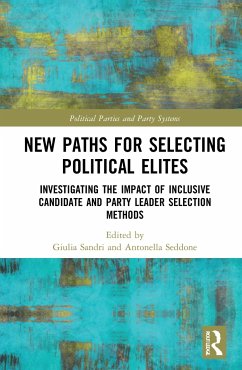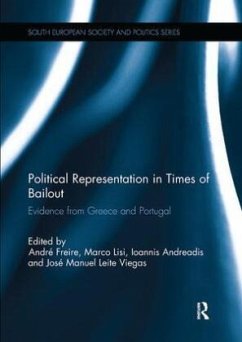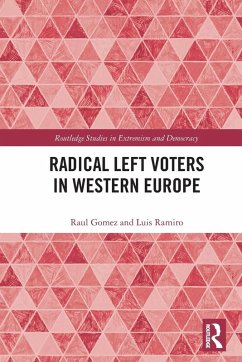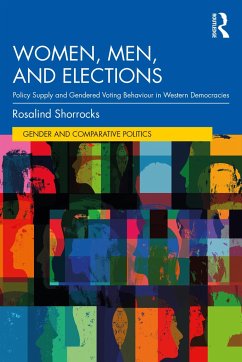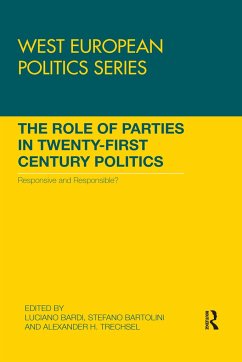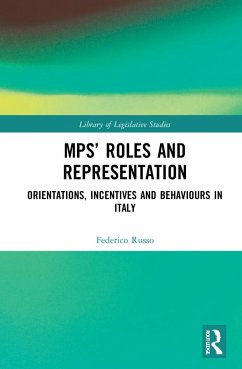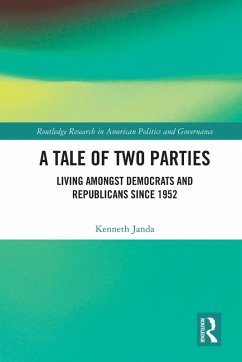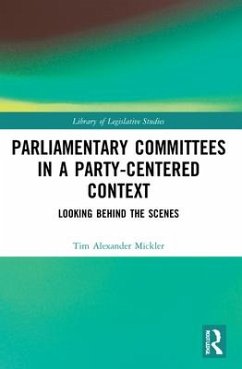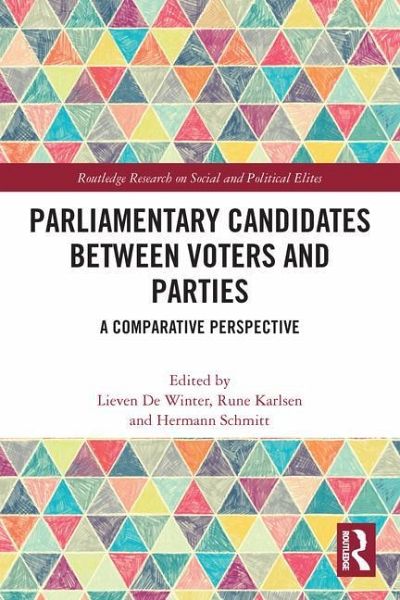
Parliamentary Candidates Between Voters and Parties
A Comparative Perspective
Herausgegeben: De Winter, Lieven; Karlsen, Rune; Schmitt, Hermann

PAYBACK Punkte
22 °P sammeln!
This book offers the first comprehensive, comparative and coherent perspective on parliamentary candidates in contemporary representative democracy.Based on the unique database of the 'Comparative Candidate Survey' project which interrogated parliamentary candidates in more than 30 countries, it fills a significant lacuna by focusing on the thousands of ordinary candidates that participate in national elections. It examines who the candidates are in terms of their socio-demographic background and political career patterns, how they were selected by their parties, what their policy preference a...
This book offers the first comprehensive, comparative and coherent perspective on parliamentary candidates in contemporary representative democracy.
Based on the unique database of the 'Comparative Candidate Survey' project which interrogated parliamentary candidates in more than 30 countries, it fills a significant lacuna by focusing on the thousands of ordinary candidates that participate in national elections. It examines who the candidates are in terms of their socio-demographic background and political career patterns, how they were selected by their parties, what their policy preference are and whether these are congruent to those held by their voters, who they seek to represent and how they intend to do so once elected, and what their visions are on representative democracy and party government. Last but not least, it investigates how they go about reaching out to their potential voters during the election campaign.
This book will be of key interest to scholars and students of political parties and party politics, political elites, political communication, political participation, elections, theories of democracy and representation, legislative studies, voting behaviour and more broadly to European politics, as well as to political and policy professionals throughout Europe.
Based on the unique database of the 'Comparative Candidate Survey' project which interrogated parliamentary candidates in more than 30 countries, it fills a significant lacuna by focusing on the thousands of ordinary candidates that participate in national elections. It examines who the candidates are in terms of their socio-demographic background and political career patterns, how they were selected by their parties, what their policy preference are and whether these are congruent to those held by their voters, who they seek to represent and how they intend to do so once elected, and what their visions are on representative democracy and party government. Last but not least, it investigates how they go about reaching out to their potential voters during the election campaign.
This book will be of key interest to scholars and students of political parties and party politics, political elites, political communication, political participation, elections, theories of democracy and representation, legislative studies, voting behaviour and more broadly to European politics, as well as to political and policy professionals throughout Europe.





